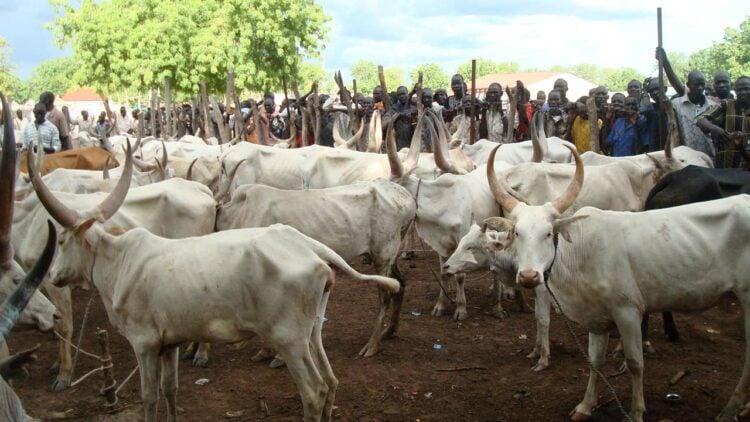The federal government has taken a major step towards modernising the livestock sector with the signing of a Memorandum of Understanding (MoU) between the Ministry of Livestock Development and the Rural Electrification Agency (REA) to deploy renewable energy in grazing reserves and livestock clusters across the country.
Speaking at the signing ceremony in Abuja, the Minister of Livestock Development, Dr. Idi Mukhtar Maiha, described the agreement as a “pivotal step forward” under the Renewed Hope Agenda, aimed at transforming pastoral communities and strengthening food security.
“For too long, our farmers had been constrained by a lack of basic infrastructure. Today, we are not just signing a document, we are ushering in a new era of sustainable development. By powering rehabilitated grazing reserves with solar mini-grids, we are laying the foundation for peace, productivity, and prosperity in rural communities,” the minister said.
Maiha disclosed that four pilot reserves Wawazengi in Gombe, Wase in Plateau, Gungush in Adamawa, and Kawu in Bwari Area Council had been earmarked for immediate intervention.
He explained that the facilities would include veterinary clinics, primary schools, health centres, water systems, and internal road networks, all powered by renewable energy.
Permanent Secretary in the ministry, Dr. Chinyere Ijeoma Akujobi, said the collaboration was crucial because “everything revolves around power.”
She emphasised that all planned interventions, from renewable villages to revamped grazing reserves, require electricity to succeed.
Managing Director of REA, Dr. Abba Aliyu Abubakar, hailed the partnership as a “marriage of convenience” that aligns with the agency’s mandate to electrify unserved and underserved communities.
He noted that the program, tagged E-HEART—energizing health, education, agriculture, rural development, and transportation—would integrate livestock development into broader rural electrification efforts.
“We want to ensure that wherever the ministry establishes grazing reserves, electricity follows. When you combine grazing reserves with schools, health centres, abattoirs, and markets, you create development clusters that renewable energy can unlock. That is why this day is very special for us,” Abubakar said.
Executive Director of REA, Technical Services, Engr Umar A. Umar who also spoke at the event, highlighted the agency’s track record in deploying standardized solar mini-grids across the country, stressing that the same global standards are being applied in Nigeria to ensure reliability and efficiency.
The initiative, Umar said, is expected to catalyze livestock productivity, improve rural livelihoods, foster peaceful coexistence between herders and farmers, and create green jobs through the installation and maintenance of renewable energy infrastructure.
With over 400 grazing reserves nationwide at varying levels of abandonment, the ministry said the pilot projects would serve as a model for scaling up across the country in line with Nigeria’s food security and climate-smart development goals.











